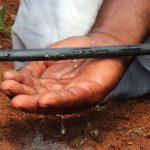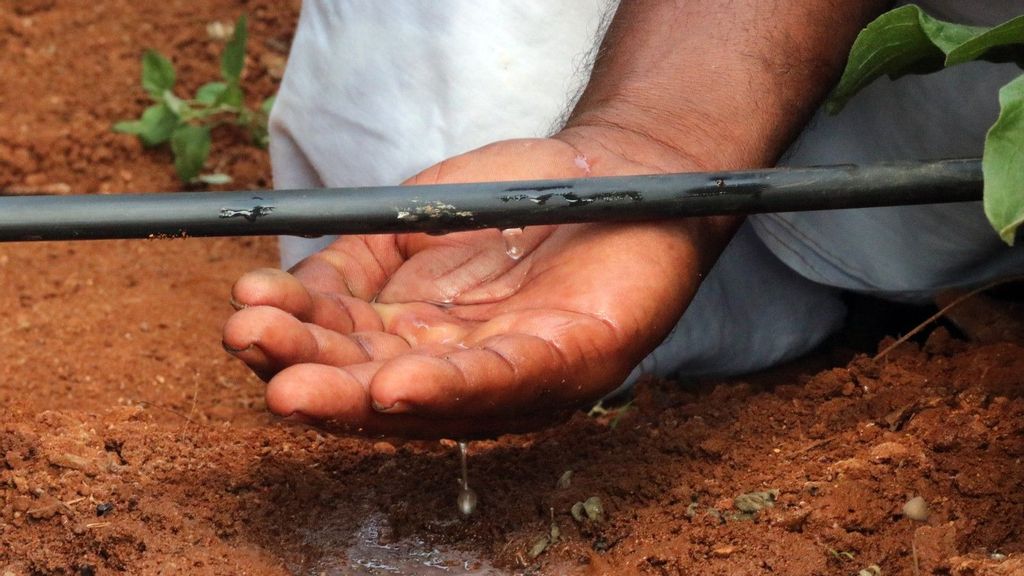
Food, water, land.
Global trends indicate these survival basics are in jeopardy and will become scarce in the not-so-distant future.
“If assumptions about population growth come true, we will need to feed about 10 billion people 30 years from today,” says Gaby Miodownik, CEO of Netafim, the kibbutz-based company driving mass adoption of smart irrigation as a key piece of sustainability.
“We all know the challenges in terms of water and arable land. We will not have more water or more land in the future,” Miodownik said. “We could make more land available through deforestation, but we would pay a big price in negative impacts on climate change.”
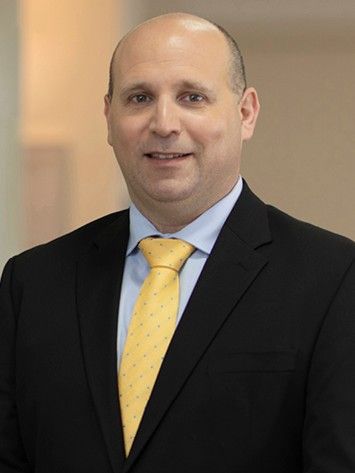
Netafim’s founders invented the method of embedding drippers in irrigation hoses to deliver measured doses of water and nutrients to crops at precise times and places. A leading irrigation company, it claimed $1.1 billion in sales in 100-plus countries in 2021. Through subsidiaries in about 40 countries and distributors in many more, Netafim has irrigated over 24 million acres.
But Netafim and other precision-irrigation companies have barely scratched the surface. Some 75% of Israel’s crops are drip-irrigated compared to only 5 percent globally, according to a report from Start-Up Nation Central.
“Agriculture today is not being done sustainably,” says Miodownik. “Most water for agriculture is being used in the most inefficient way, by flooding the fields.”
In February, Miodownik delivered a keynote speech at the Dubai Expo on the agricultural challenges facing the region and the world and how precision irrigation can help save water and land.
“We believe that two powers — human will and technology — can increase control and eventually help our farming be more sustainable and more efficient,” he says.
More and more countries are utilizing Israeli agricultural technologies as droughts and other extreme weather conditions affect every part of the world.
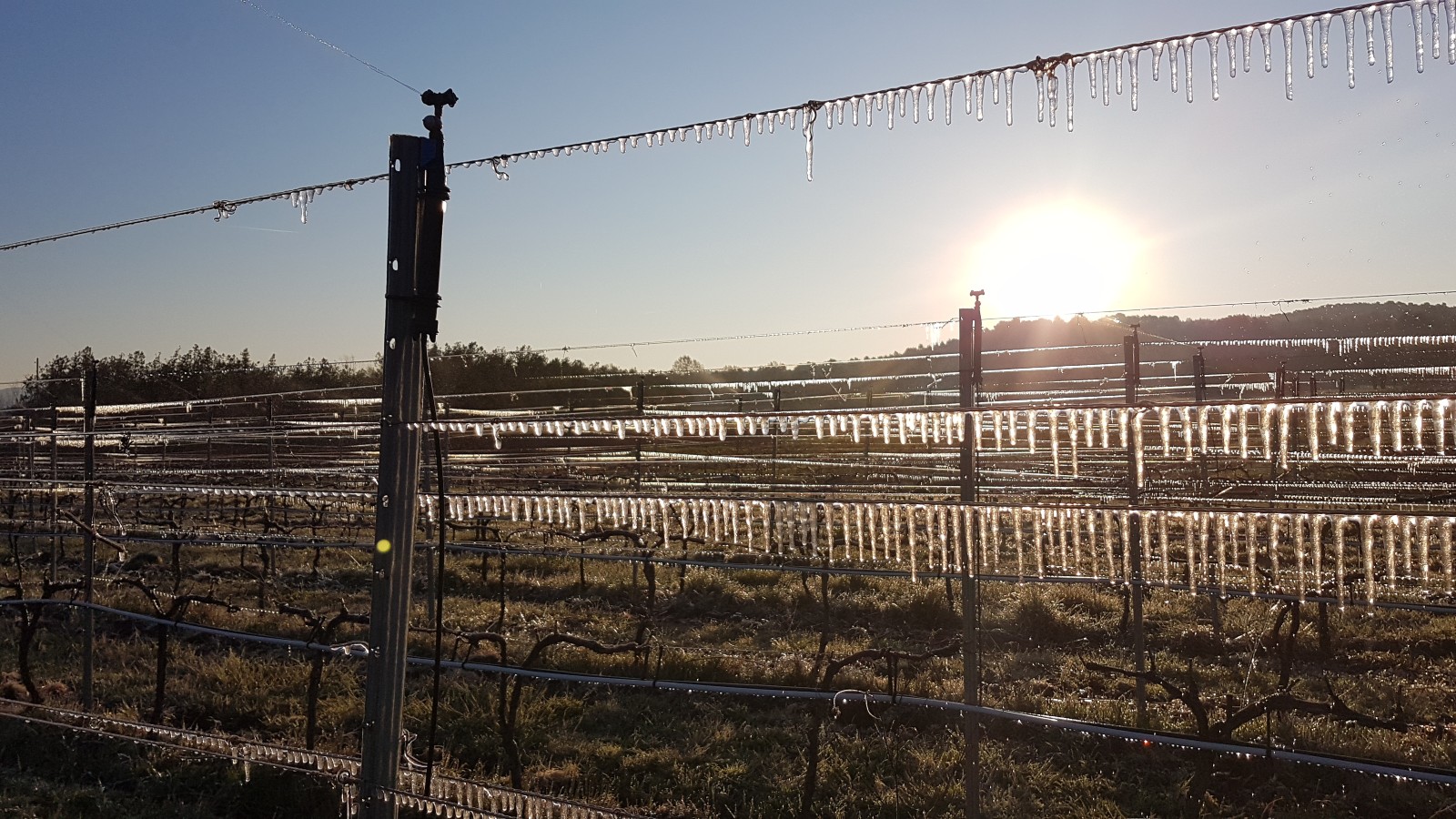
Start-Up Nation Central counts more than 400 Israeli ag-tech companies using sensors, AI, drones, satellite images, genetic engineering and more to help farmers control processes from seeding to harvest.
Miodownik credits this to seven decades of brilliant Israeli solutions. Most of Israel’s land mass is unsuitable for farming, and adequate water supply is a constant concern. Yet this small Middle Eastern country produces 95 percent of its fresh produce and exports produce as well.
More yield from less land
Transitioning from flood to drip irrigation can save huge amounts of water. Netafim is advancing this goal by tailoring drip irrigation for rice paddies that have been watered by flooding. Rice cultivation uses up to 40 percent of the world’s freshwater; Netafim’s rice paddy solution reduces water usage by 70 percent.
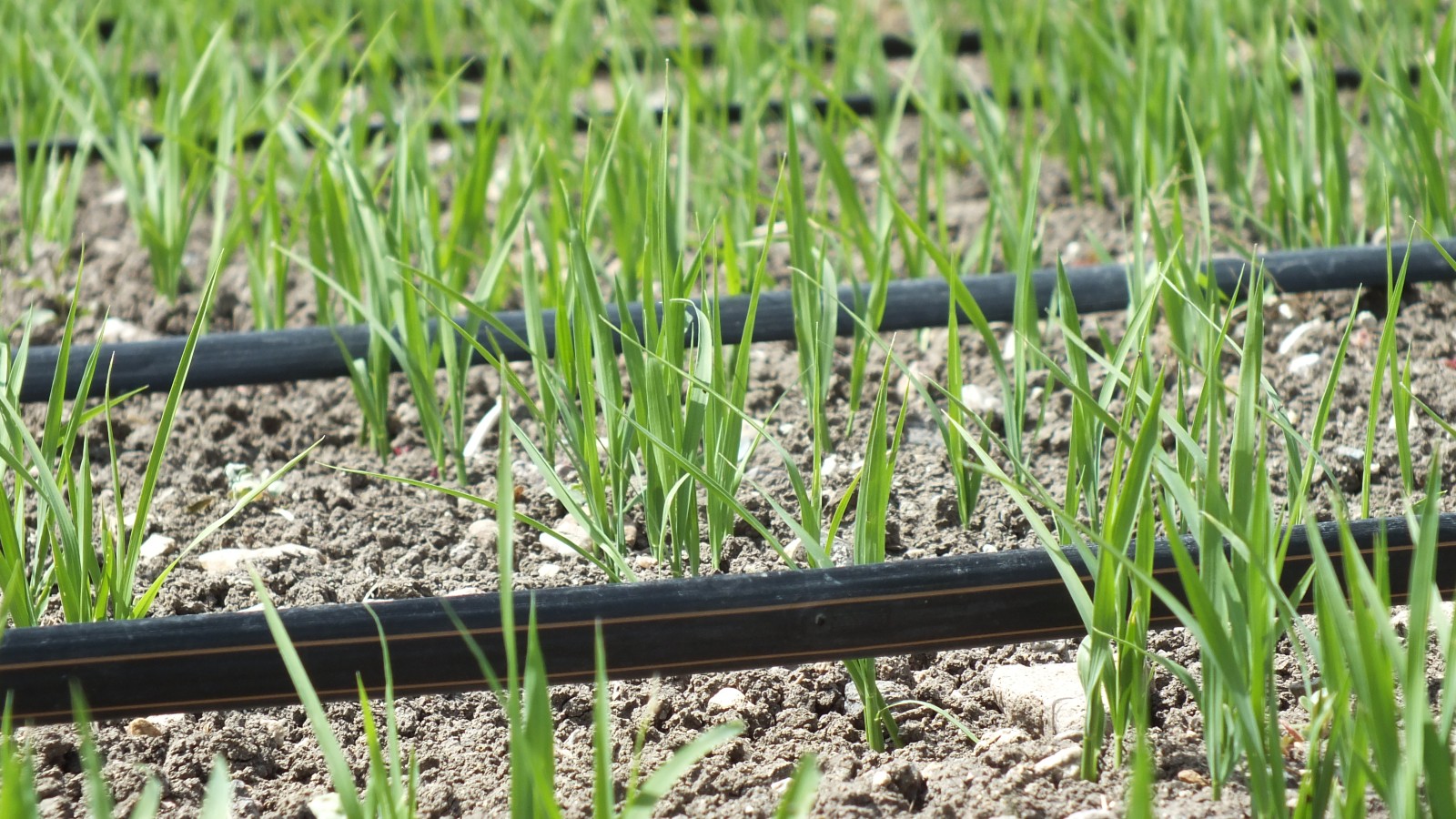
“We are trying to enter more crop categories that will greatly increase our impact on sustainability and food production,” says Miodownik.
Another issue is the overuse of crop protection products, such as herbicides harmful to the soil and the planet, not to mention human health. Precision irrigation minimizes the use of these products.
A less obvious problem is the practice of monoculture — growing the same crops in the same field year after year. Eventually, the depleted soil will not support them, and the farmer is forced to acquire more land.
Drip irrigation is one of various strategies and technologies that can increase yield from the land the farmer already has, says Miodownik.
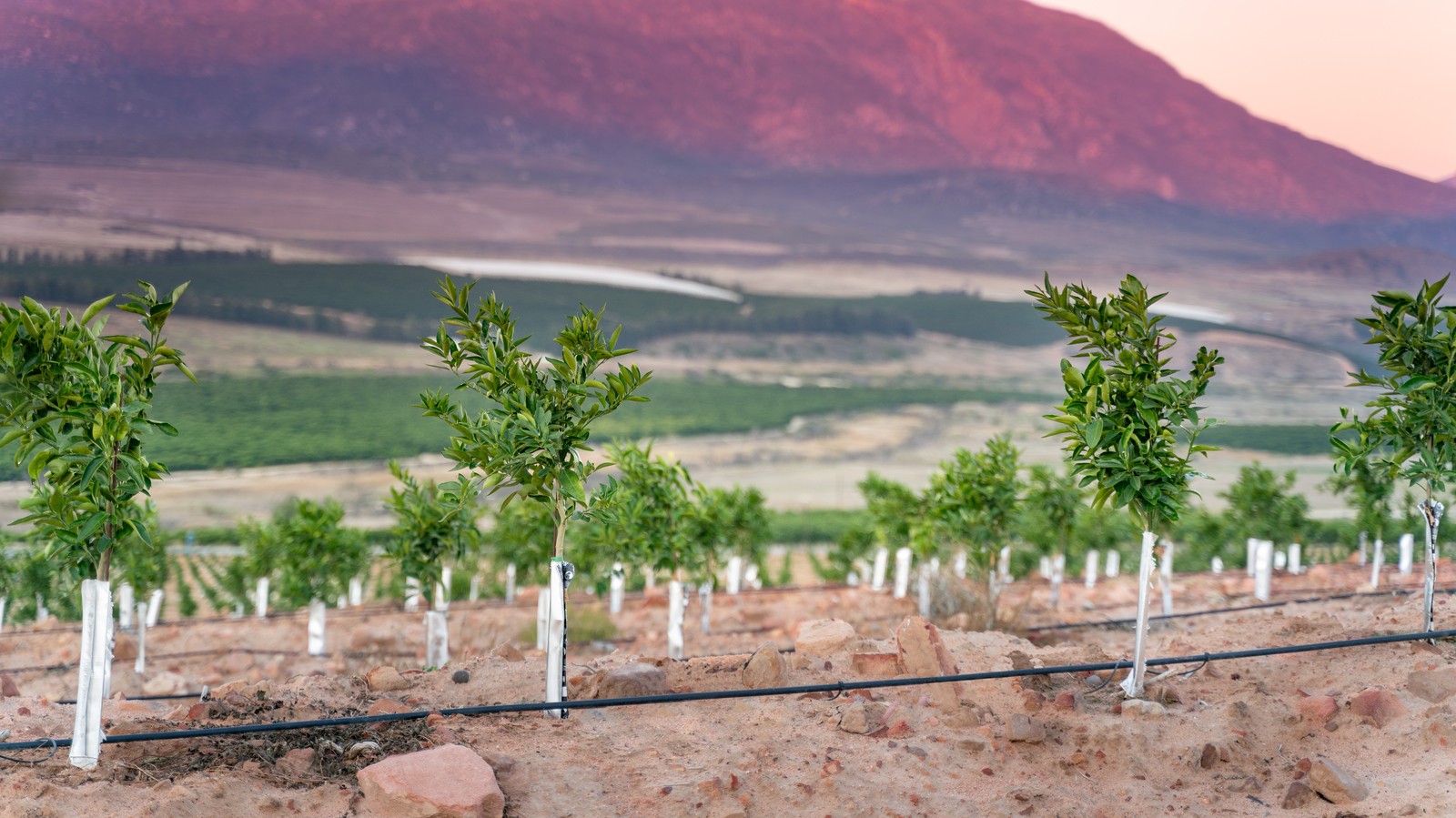
Miodownik offers the example of farmers in Brazil.
“Until a few years ago, Brazilian farmers depended on rainfall and/or flood irrigation. When they wanted to grow more grains, they needed to buy more land. Now they understand they can simply invest in irrigation technology and get more food from the same land while reducing their water and fertilizer footprint.”
Carbon footprint
Smart irrigation reduces a carbon footprint, too. “In the past, if you bought an avocado in Europe, it was coming from the Americas,” Miodownik says.
“Today, with our type of technology, you can grow avocados very well in Israel or Morocco or Spain” —or even India. “You don’t need to ship thousands of tons of avocados across the ocean.”
Greenhouse or indoor farming — another area Netafim supports — also cuts a carbon footprint because food can be grown close to retailers, on demand.
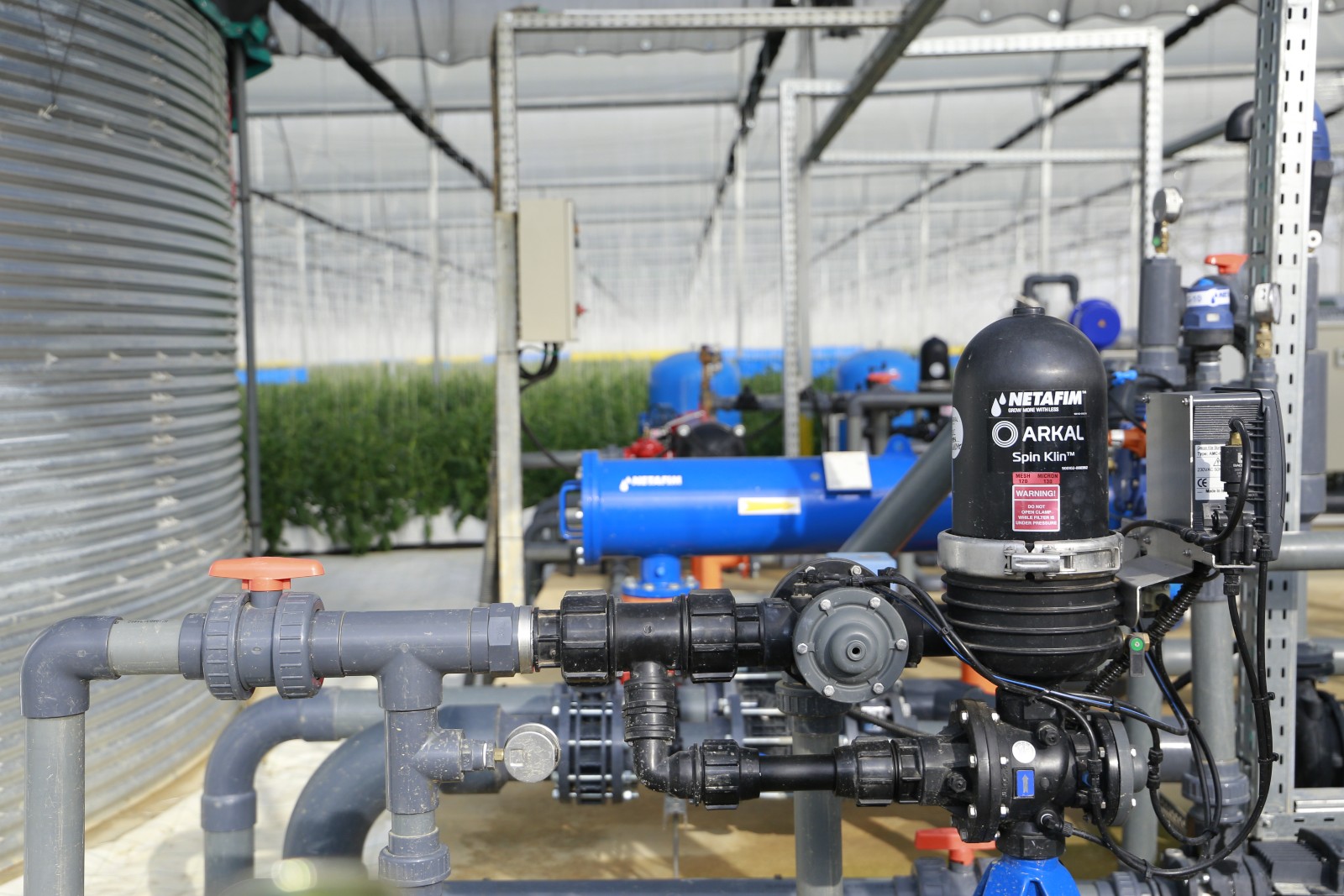
Netafim is developing cooperative models with other irrigation companies to help farmers monetize carbon credits. “This will incentivize them to invest in our type of technologies,” Miodownik explains.
Carbon emissions also will be reduced by decreasing plastic consumption at Netafim’s 17 factories — 14 of which are outside of Israel. This is significant, because in 2017, Netafim was acquired by Orbia, one of the world’s largest producers of plastic pipes and fittings.
“We are now collecting old drip lines from farmers and processing them in our own recycling factory and reusing them,” says Miodownik.
“We started this in California a few years ago, and now are developing it in Mexico and in Europe. It’s a new way of being more sustainable — not just through saving water and producing more food but also in terms of waste.”
The affordability hurdle
However, stark reality is that ag-tech solutions are too expensive for the world’s 450 million small-holder farmers.
Netafim is among many Israeli ag-tech companies inventing more affordable products and business models to fill this need. (SupPlant plans to tackle this problem with a sensor-less approach.)
Netafim is reengineering its systems to make them cheaper and simpler to install and use. The company is piloting innovative cooperative programs for farmers lacking the money to invest in precision irrigation.
“We are trying to replicate a successful model we have in India called ‘community irrigation.’ Together with local governments in southern India, we gather thousands of small farmers and implement a big project that involves both water infrastructure and in-field irrigation,” says Miodownik.
“At the end of the day, each farmer is irrigating his acre or two, and getting a few years of agronomic and technical support from our people in the field.”
Netafim also introduced “irrigation as a service.” Rather than having to lay out large capital expenditures, farmers pay a monthly fee to have Netafim install and operate the systems.
“This also overcomes the fear of new technology, which in many places is the main barrier we have,” says Miodownik. “We operate it for them on a small pilot basis, so they can see it works.”
Another Netafim model is helping governments create new agricultural areas.
“The government of Rwanda saw a need for high-level agriculture in a particular area where there was no water,” says Miodownik. “So we created the infrastructure and brought water from another site. The next phase will be to bring international investors to invest in high-tech agriculture in that region to serve the local or export markets. The residents also benefit because it improves their livelihood.”
Netafim’s Chief Sustainability Officer, John Farner, is one of nine corporate leaders worldwide invited to join the UN’s CEO Water Mandate Steering Committee addressing water challenges with advanced water sustainability solutions.
Securing food supply in the Gulf
The Netafim CEO says his keynote in Dubai was well-received, as the United Arab Emirates has a keen interest in Israeli technologies that can reduce the country’s dependence on imported food.
“Since the peace agreements were signed, we’ve had a warm welcome from a lot of companies there,” says Miodownik.
“We are supporting these companies in terms of their needs in the UAE, but also in farming activities outside the country that are supporting their food security needs.”
Netafim even relocated its vice president in charge of Africa and the Middle East from Israel to Dubai last year.
“We hope soon the Saudis will become part of this mission of helping more and more farmers around the world to grow more food with less resources.”
Produced in association with ISRAEL21c.
Recommended from our partners
The post Less Is More: Netafim Is Turning Floods Into Drips Worldwide, Increasing Farming Yields appeared first on Zenger News.

